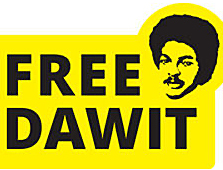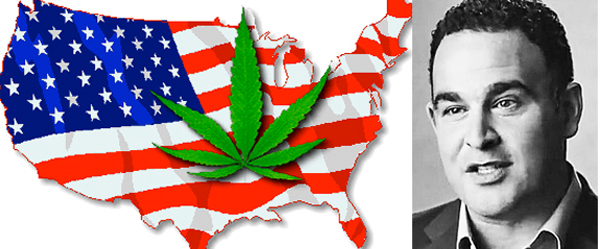The legalization movement succeeded in legalizing marijuana in four more states last week. We shouldn’t let them end with heroin, writes Kevin Sabet, president of Smart Approaches to Marijuana, about the situation after US election.
Every election cycle, versions of the same headline pop up: ”Americans are united for legalizing marijuana.” The implication is that federal marijuana legalization, despite its opponents in the public health and safety fields, is right around the corner. ”It’s inevitable,” we always seem to hear. And with four U.S. states legalizing marijuana last week—bringing the grand total of pot states to 15—we’re hearing it yet again.
But that analysis is both simplistic and wrong. What has emerged are four complex developments, some more immediately significant than others—but all important.
First: Don’t expect Congress or the new president to be legalization friendly.
Resisting intense pressure from the Bernie wing of his party, president-elect Joe Biden has not taken the legalization bait. He was the only Democratic candidate not to do so, and he will soon be president. If the Senate composition remains as expected, that body won’t have the appetite for lax drug laws either. So, it’s back to the states.
Second: Money talks.
Is this shift toward legalization reflective of the science or a successful PR campaign? All evidence points to the latter. After all, the pro side outspent the con side this past election cycle by more than 400 to 1. Yes, 400 to 1.
Twenty years ago, when Bill Zimmerman, the March on the Pentagon founder turned high-priced Santa Monica political consultant, told NORML (National Organization of the Reform of Marijuana Laws) conference attendees they should consider an ”incremental approach” to legalizing drugs, focusing on things Americans agreed with already (”the drug war is a failure” or that marijuana is medicine), there was some skepticism among the pot faithful. But the marijuana movement agreed, even saying out loud, ”We are trying to get marijuana reclassified medically. If we do that…we’ll be using the issue as a red herring to give marijuana a good name.”
Indeed, when George Soros got involved in giving millions to legalization, he told his drug policy point person, according to Rolling Stone, to ”come up with an approach that emphasizes ’treatment and humanitarian endeavors’…hire someone with the political savvy to sit down and negotiate with government officials, and target a few winnable issues, like medical marijuana and the repeal of mandatory minimums.” Other mega-rich donors got in on it too. As the eminent drug policy scholar Jon Caulkins has put it, ”The simplest explanation of why marijuana reform happened is that three billionaires decided it should happen and they bankrolled the process for many, many years.”
Third: It’s not about marijuana anymore—maybe it never was.
Last week’s votes not only ushered in marijuana legalization, but inched us closer to legalizing all drugs. A successful Oregon initiative (Measure 110) decriminalized drugs like heroin and methamphetamine, and other measures legalized psychedelic mushrooms ”for medical and research purposes.”
This shouldn’t come as a surprise. Ethan Nadelmann, Soros’s guy, wrote ”Should We Legalize Drugs? History Answers: Yes” as early as 1993.
Fourth: There are ways to effectively reform drug policy. What happened last week isn’t one of them.
People voted for Oregon’s decriminalization Measure 110 last week—and arguably for marijuana legalization in other states—because they wanted ”treatment over incarceration” and an end to the ”war on drugs.”
But the devil is in the details. By reclassifying drug offenses as violations, Measure 110 would take away the state’s ability to send people who use drugs to drug courts, an incredibly effective mechanism to reduce crime and promote recovery. The measure doesn’t actually create one new treatment bed or pay for anyone’s treatment – instead it tells users to pay $100 or call a hotline to refer them to treatment. What happens if they don’t call? No one really knows. There is also talk that teens who get caught with drugs won’t have their parents notified of the offense.
There is no doubt we need to overhaul the way we treat addiction in this country. People should not be jailed for their addictions. But because of the nexus between crime and drugs, we need to promote public health alongside the criminal justice system better – not separate them entirely. Drug courts, HOPE Probation, LEAD, 24/7 and the Drug Market Initiative are examples of proven programs that do this – and they are funded by people on all sides of the political spectrum because they work. We should be scaling them up, not pushing them aside.
We need a humane drug policy – holistic strategies and programs that get people into recovery and reduce addiction’s severe financial and human costs. What we don’t need is more widespread access, availability and advertising of harmful drugs. This is not a call for more incarceration. But let’s be smart.
The legalization movement succeeded in legalizing marijuana in four more states last week. We shouldn’t let them end with heroin.
• Footnote: The article is also published in The Newsweek.

KEVIN A SABET
– served in three White House administrations, most recently as senior drug policy advisor from 2009 to 2011. He is the president of Smart Approaches to Marijuana.




